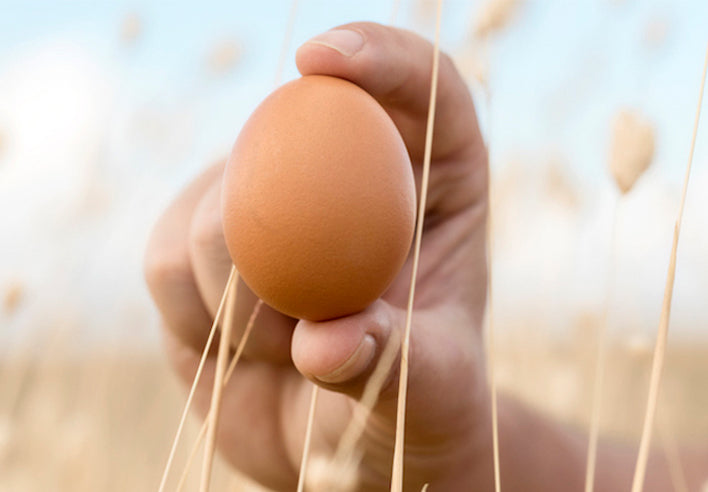Muscle Cramps? Recovering from Exercise? These are the Electrolytes for You.
To keep muscles strong, you need the proper supply of nutrients to help them contract and relax.
This blog reveals:
- Two key electrolytes needed to aid muscle recovery and fight muscle cramps and spasms.
- The importance of taking a magnesium supplement that is chelated and not oxidized.
- Why assisting your nervous system is essential to combating muscle cramps and spasms.
- The all-natural supplement formulated by a Master Herbalist to help restore muscle function.
We know that regular exercise is an important part of living a healthy and balanced life.
Just as important, but often-overlooked, is practicing proper muscle recovery.
Not taking care of our muscles after we exercise can lead to muscle fatigue and breakdown, often resulting in cramps and spasms.
Thanks to our Master Herbalist, Stacey Littlefield, we’re able to reveal two essential electrolytes for proper muscle recovery, and fighting cramps and spasms…
Two key electrolytes needed to aid muscle recovery and fight muscle cramps and spasms.
While there are plenty of supplements and nutrients that are necessary in the muscle recovery process, Stacey has identified these two electrolytes as essential for helping our muscles relax and rest.
Making sure our muscles engage in this restorative recovery will also limit the chances of experiencing muscle cramps and spasms.
The first is magnesium.
Magnesium
Magnesium is an abundant mineral in the human body, and is also a very important electrolyte for maintaining healthy muscle function. Magnesium-rich foods include whole-wheat bread, cashews, and spinach.

Photo by Jenn Kosar on Unsplash
A muscle contraction is caused by calcium surrounding your muscle fibers. If there is too much calcium around these fibers, your muscle will continue to hold tension.
Stacey explains that magnesium allows your muscles to relax by proverbially “cutting in front” of the calcium, and thus preventing it from stiffening your muscles.
Stacey also warns that you must make sure the magnesium you take is chelated. If you take oxidized magnesium, you will likely never feel the benefits.
Why your magnesium supplement should be chelated and not oxidized.
The effects of taking a supplement like magnesium are not instantaneous.
It works its way through the body, waiting for the body to absorb it into the bloodstream.
The problem with oxide is that it is incredibly good at creating water. So while magnesium oxide sits in your colon waiting to be absorbed, it starts to draw water toward it.
What do you think happens when your colon starts to fill with water?
You’ll have a bowel movement before much of that magnesium makes its way into your blood!
This is why you should aim for a chelated magnesium supplement. It deters laxative action, and as a result you’ll experience more absorption and reap greater benefits.
Potassium

Photo by Giorgio Trovato on Unsplash
Potassium is another mineral that functions as an electrolyte. Potassium-rich foods include bananas, artichokes and sweet potatoes.
Potassium plays a key role in maintaining the electrolyte balance in our body, but it also has a role in managing muscle relaxation.
Muscle cramps, which are sudden, uncontrolled contractions of muscles, have been shown to occur much more frequently when potassium levels are low.
This is due to the relationship between your muscles and your nervous system…
Supporting your nervous system helps your muscles!
Our muscles do not move until our nerves tell them to.
This means that when we experience a spasm or a cramp, despite it not being conscious, it’s because our nerves are firing messages to our muscles!
When our potassium levels are high we are much less likely to experience these difficulties. This is because potassium is responsible for helping to clearly relay messages from our brain to our muscles; when to contract and when to relax.
When our potassium levels are low, these messages are clouded and we’ll suffer from far more muscle spasms and cramps.
Stacey’s all-natural formula for promoting healthy muscle function!
Stacey has made sure to include both of these key electrolytes in her formula for supporting healthy muscle function, Muscle Ease™!
She has included Magnesium rice protein chelate, an incredibly absorbable mineral that will help make sure your body benefits from muscle relaxation.
There’s also another chelated source of magnesium, magnesium glycinate, which is a principal calming neurotransmitter, helping ensure your nerves don’t start contracting unexpectedly!
Her formula is rounded out by minerals and ancient herbs from Chinese and eclectic traditions, including:

- White peony and angelica help fight against muscle spasms particularly in the abdominal region and our extremities.
- American Skullcap, which helps to calm twitches and spasms in undernourished nervous systems.
- Alfalfa and dulse are the nutrient-dense foods that make up our Trace Mineral Blend, to support optimal muscle contractions and relaxation!
Stacey’s Summary:
- Magnesium and potassium are two electrolytes needed to aid muscle recovery and fight muscle cramps and spasms.
- You will likely get more benefit from a chelated magnesium than magnesium oxide.
- Low potassium levels could result in your nerves firing at sudden and unexpected times.
- Use the restorative recovery promoted by Muscle Ease™ to help your body avoid cramps and spasms, and give your muscles the relaxation they deserve!
* Featured Photo by Jonathan Borba on Unsplash
Related Posts



